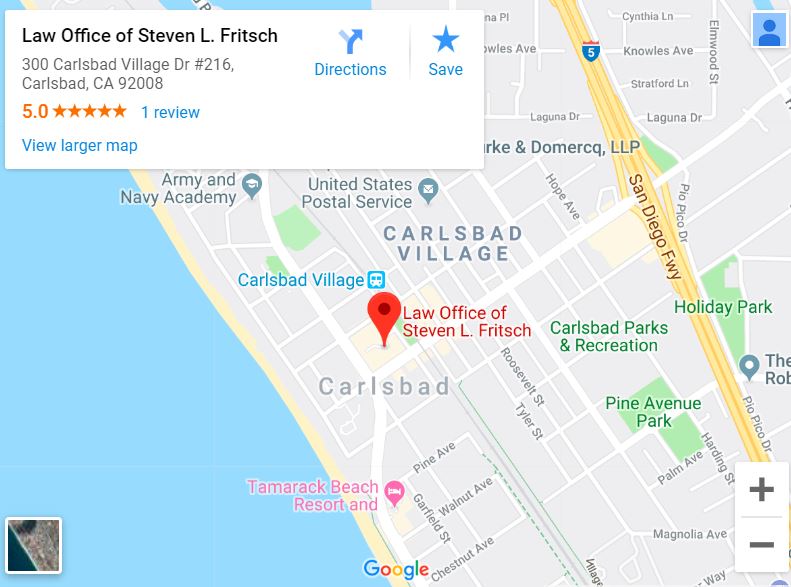Family Law
This set of laws is a broad legal umbrella that focuses on matters relating to the family. Divorce, child custody, adoption, and domestic violence all fall under this practice area. It is an area of civil law, but some issues, such as abuse, may be criminal as well, although they would be tried in a different court.
Military Divorce
This type of divorce is different from a regular or civilian divorce and more complex. When at least one of the spouses is enlisted in the U.S. military, their dissolution of marriage is mandated by specific laws due to the special circumstances that being in the military presents.
Divorce
When one or both partners decide to leave a marriage, they must complete divorce proceedings. This is different from a legal separation in that a divorce is a permanent dissolution of a marriage. If the parties reunite later, they would have to get married again in order to have a legally recognized marriage.
Legal Separation
When a married couple decides to live apart, they can address each spouse’s responsibilities and rights during the time they are separated or until their divorce is finalized in a legal separation. It is a written agreement that is legally binding since it is filed with the court. However, it does not have the permanence of a divorce.
Same-Sex Divorce
Same-sex divorces are recognized in California but not in some other states. Because of this, a couple who was married in California, but no longer live in the state (and the state they are in does not recognize same-sex divorce) are not subject to the residency requirements of a regular divorce.
Annulments
Much like a divorce, an annulment does dissolve a marriage. The difference is in how the marriage is viewed. While a divorce views the spouses as being married, an annulment treats the union as if it never existed.
Custody
When a couple is going through a divorce or legal separation and they have children, the custody arrangements dictate physical custody, legal custody and visitation. It looks at what is in the best interest of the child. Custody is separate from child support.
Visitation
In a custody action that is part of a divorce or legal separation often includes details regarding the noncustodial parent’s right to visit their child or children. In some cases, visitation can also be extended to other parties such as grandparents, biological parents in an adoption, and step parents.
Child Support
When a couple with children separate, whether by legal separation or divorce, each parent has a legal obligation to provide financial support for the child or children. The court determines the amount of child support that the noncustodial parent must pay based on state based child support guidelines.
Spousal Support
A couple in a legal separation or pending divorce may be subject to California’s alimony law. Under the law a judge in family court can order one spouse to provide spousal support to the other, including the amount and how long it is to be paid.
Division of Assets and Debts
Over the course of a marriage, a couple may acquire assets as well as debts. When they divorce or separate, those assets and debts must be divided equally under California’s community property laws. The judge will determine what is marital property/debt and what is separate.
Domestic Violence
California’s domestic violence laws cover criminal acts of abuse and violence in intimate and familial relationships. This can apply to a husband or wife, cohabitant, former spouse or cohabitant and also covers a person who is in a dating relationship. Child abuse often occurs with domestic violence.
Restraining Orders
This is often used in domestic violence situations to protect a person from harm. It is issued by a judge and may be obtained if the person is enduring threats of violence, serious harassment, stalking, and violence from a partner or former partner. If the person is being stalked, harassed, or threatened, they may be able to get an order of protection from the court.
Paternity
California law allows for the terms “paternity,” “parental relationship,” and “parentage” to be used interchangeably. Essentially, paternity is the process of determining if a person is the parent of a child. It can apply to the mother or the father and can be pursued in or out of the courtroom. A judge may order it in a custody case.
Guardianships
A guardian is a person who may or may not be related to the child but is legally awarded full physical and legal custody. They have the same rights and responsibilities regarding the care of the child that a parent would have.
Mediation
This is a process that allows a couple or opposing parties to come together outside of a courtroom and reach an agreement. It is mediated by a neutral third party and is intended to facilitate an amicable agreement and open communication. It is often used in divorce and custody cases to minimize the stress of going to court.
Prenups
A premarital agreement is a document that arranges certain rights, such as property division, prior to the marriage. This agreement is enforceable and is usually intended to be a safeguard for one or both partners who have financial assets.
Postnuptial Agreements
Similar to a prenuptial agreement, a postnuptial agreement protects the finances and assets of a person in a marriage in the event of divorce or separation. The difference is that it is signed after the people are married.
High Asset Divorce Property Division
Just as the term implies, this type of property division involves divorces where there the assets are much greater. It may include investments, business interests, and family trusts. These tend to be much more complex than regular property division cases.

